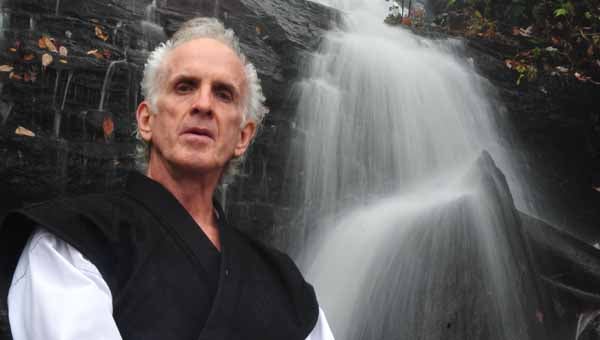Marshall Gagne: Have sword, will travel
Published 9:57 pm Friday, November 6, 2015
Forty-eight years of studying martial arts has brought harmony to Marshall Gagne (pronounced “Gonyea”). It has been harmony with nature, harmony with others and harmony within.
He’s seeking local adults, to teach them the disciplines he loves.
Gagne, who has lived in the Tryon area since 2000, is a senior grandmaster in the Korean martial arts of Hapkido, Won Ki Do (“Full circle of the energy”) and Won Kum Do (“Full circle of the sword”), the highest-ranked non-Korean in these disciplines.
One might say that Gagne’s background in these arts began in 1967, when, as a paratrooper in the U.S. Army, he learned hand-to-hand combat. Later, he was stationed in Korea, where he studied and received a black belt in Tae Kwon Do, and also studied Hapkido.
Gagne’s history in self-defense began much earlier.
When he was a youngster, his father, a former U.S. Marine Corps boxer, taught him how to box. Later, Gagne, who grew up in Gibraltar, Mich., on Lake Erie, wrestled in high school.
Gagne, who had done some skydiving as a civilian, found himself an Army paratrooper.
“They drop you (out of a plane) at night. If your chute doesn’t open, you die, or they (enemy fighters) shoot you. We were all so gung ho, we didn’t think about that at the time,” said Gagne.
At Ft. Bragg, N.C., Gagne became a member of the Golden Knights, the U.S. Army parachute team that performs for crowds. Eventually, he left the team, but remained an Army paratrooper.
“As soon as I got to Korea,” he recalled, “I started martial arts. That’s where they originated.” While earning a black belt in Tae Kwon Do, he also learned Hapkido, which he found more sophisticated.
“I practiced seven days a week, two and three times a day because I wanted to earn my black belt before my tour of duty ended,” said Gagne about his time being stationed in Korea.
On his return back home, Gagne remained silent on his martial arts training, as those disciplines were little known here in the U.S.A. It was not until the 1970s, that martial movies became more popular.
Gagne’s intense interest and training has helped make him a member of the Martial Art World Hall of Fame.
He now teaches older people though his school in Greenville, S.C., which currently has students from age five through 60.
Gagne emphasizes that the disciplines he teaches are ideal for older individuals, as great physical strength is not a requisite.
“You basically do what you can do, you don’t need to do all the fancy moves and high kicks. The most popular reason to take martial arts,” Gagne noted, “is for stress release, and also for agility, self-discipline, balance and physical fitness.”
Gagne also teaches techniques with the cane and umbrella, items often carried by seniors.
“Older people love to use a cane or umbrella,” he pointed out. “It’s wonderful for self-defense and exercise. These disciplines help increase agility, and keep your body young and your mind alert. It’s all anti-aging stuff. It’s fun.”
Gagne points out that martial arts can be a lifetime activity, with no limit on age.
“Anyone can learn Hapkido,” Gagne said. “You don’t need to be big and strong. Hapkido helps the defender use the energy of his or her attacker, by first deflecting it, then neutralizing and then countering it. It’s a combination of ‘hard’ and ‘soft’ martial art. For example in some forms of martial arts, a block can disable an attacker. Deflection, as employed in Hapkido is softer, and part of circular movements.”
Won Ki Do, Gagne said, is derived from Hankido, a Korean form of martial arts, which, in turn, was derived from the Japanese Aikido.
“Won Ki Do is now 100 percent American,” Gagne noted.
“I made Won Ki Do,” Gagne continued. “I designed Won Ki Do, so it’s a 100 percent American martial art.”
According to Gagne, he studied and became proficient in Han Ki Do, under the late Korean Great-Grandmaster Myong Jae Nam.
Gagne said that ten original Korean masters made Hapkido.
“I got to study with four of them, so I was honored, lucky, fortunate to learn from four Great-Grandmasters who had developed that art. I feel really blessed to have developed my own art,” Gagne continued.
In Korean, “won” means circle, including philosophical concepts, and the concepts of the circle, water and harmony, the three principles, Gagne emphasized. “Those principles are in all the martial arts I teach.” The three concepts can be used in everyday life.
“I love those principles,” he said.
“Harmony,” Gagne said, “means to be in harmony with nature, with the people around you, and adapting. In self-defense, the circle creates a tremendous amount of centrifugal force.”
The bottom line with the disciplines he teaches, Gagne said, “is to use the least amount of effort to create the maximum amount of force. You can use that in everyday life also,” added Gagne who is a business coach, and he coaches martial arts school owners in many aspects of business.
When Gagne returned to America from Korea over 45 years ago, he thought he’d never return there. But his deep study of Korean martial arts has taken him back countless times to study with the greatest of the Grandmasters.
The third discipline, Won Kum Do, emphasizes the Korean sword. Gagne notes that the sword is unique, in developing range of motion, the best focus and concentration (better, he said, than empty-hand martial arts), upper body strength (because students use the sword for the entire class), and aerobic conditioning.
“It’s fabulous for you,” he noted, “plus you get to dance with the sword..
“When you learn the full circle of the sword,” Gagne noted, “you are actually tracing the Korean alphabet in the air.”
“I hope we can get a class started here,” Gagne said of his desire to teach adults during the day in the Tryon/Columbus area.
In Michigan, Gagne had as many as 70 students at a time. He’s had nearly as many here. He emphasizes that he’s been a full-time professional martial arts instructor for over 40 years.
He is a certified Grandmaster from an international federation recognized by the Korean government.
For more information call 864-382-9313 or visit www.marshallgagne.com. On the site, look for the videos that Gagne has produced, and for his distance learning program. You can also visit www.ushapki.com.
# # #






